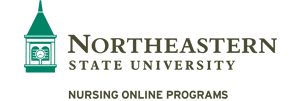Ethics plays an important role in all aspects of daily life. Healthcare is no different.
In health informatics, ethics is defined as “a tool to employ widely shared if not universal values to contemporary questions and challenges in science and the professions. Bioethics is the branch of applied ethics that addresses issues in the health professions,” states an Ethics in Health Informatics article.
There are various ethical challenges present within the healthcare field, ranging from local to global issues. According to the Ethics in Health Informatics article, these include the “development and the appropriate uses and users of machine learning software.” Additional obstacles involve maintaining individual privacy and understanding when to apply technologies — as well as how technologies and practices influence healthcare policy.
The code of ethics for healthcare professionals is everchanging, making it a fluid concept that takes many different forms. Though it may change, the ethical foundation of healthcare has a solid framework.
The International Medical Informatics Association (IMIA) explains that the three solid frameworks include:
- ethical guidance for healthcare professionals themselves
- a set of principles against which to measure conduct
- a clear statement of the ethical considerations to shape behavior
Best Practices for Nurses
As the healthcare profession transforms along with the concept of ethics, nurses are responsible for following a number of best practices. For example, nurses should always strive to care for patients using high levels of compassion, respect and trust. This is regardless of cultural and other differences that often arise within the healthcare field (such as race, income or gender).
An article on “Nursing Ethical Dilemma with Using Informatics Technology” describes that “nurses and social workers are vital members of the workforce in healthcare. They are often caught between what they believe may be better for their patients and institutional constraints or override the decisions of other healthcare professionals.”
This dilemma is apparent in the debate against bioethics and health informatics. Nurses are required to stick to their ethics when utilizing digital patient information.
Bioethics’ and Informatics’ Role in Improving Health Science
During the COVID-19 pandemic, many healthcare professionals were concerned about the spread of patient information because data related to the virus was nonexistent within healthcare records. Ethical issues surrounding public health reporting, data sharing and contact tracing introduced more wrinkles.
Once authorities pinpoint the best information to release to the public, healthcare professionals can control the transmission of sensitive patient details.
The trajectory for future partnerships between bioethics and informatics is hopeful — especially because of the work to mitigate carbon footprints. Digital health interventions during the pandemic proved there is definitely room for improvement. Both practices have the potential to improve the outlook of health science for years to come.
Improve Ethics With a Master’s Degree
One way to improve ethics in health informatics is to further your career and earn your Master of Science in Nursing (MSN) degree. Those who enroll in the Registered Nurse (RN) to MSN in Nursing Informatics online program at Northeastern State University will focus on topics relevant to ethics and how healthcare should consider patient privacy and cultural circumstances.
Students will prepare for leading roles that use technology in order to improve the efficiency and quality of healthcare. The program allows students to synthesize specialized knowledge and theories from nursing and other disciplines into advanced nursing practice.
For example, the Issues & Trends in Professional Nursing course covers the basics of the most current trends and issues facing professional nursing practice. In the Cultural Perspectives course, students explore the principles of cultural competency — which are addressed with an emphasis on regional and global populations.
Each graduate will obtain the knowledge and skills necessary to enter into influential roles in the healthcare field. Students can complete the program in as few as 24 months. This allows MSN-prepared nurses to get on their career path sooner rather than later.
Learn more about Northeastern State University’s RN to MSN Nursing Informatics online program.


